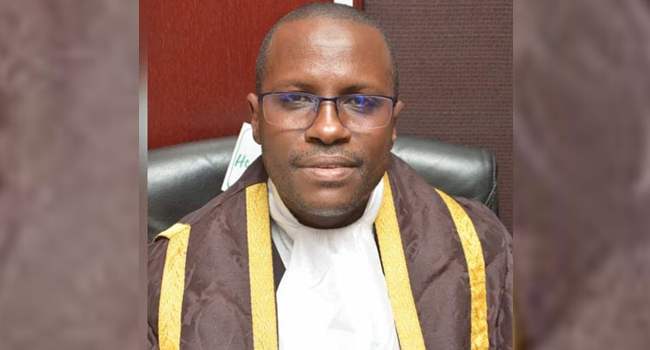In September 2024, the Independent Corrupt Practices and Other Related Offences Commission (ICPC) achieved a significant milestone by recovering N13 billion that had been diverted from public funds. Dr. Musa Aliyu (SAN), Chairman of the ICPC, made this announcement during the launch of the ICPC Strategic Action Plan for 2024-2028 in Abuja. He emphasized that this recovery not only exemplifies the commission’s unwavering commitment to fighting corruption but also underscores the progress made in enhancing accountability within Nigeria. Highlighting the importance of these achievements, Aliyu reported that the recovery of such funds was part of a broader strategy aimed at fortifying the integrity of public institutions and combatting corrupt practices across the nation.
Aliyu underscored the importance of technological advancements in the commission’s operations, revealing that ongoing ICT reforms are set to digitalize processes, thereby improving investigations, case management, and overall internal functionalities. The ICPC aims to become a leader in employing technology to keep pace with the evolving landscape of corruption, which is increasingly influenced by digital factors. Adopting such advancements is seen as essential not only for modernizing operations but also for ensuring that the commission is capable of responding swiftly to new challenges posed by cyber-related corruption.
In addition to technological reforms, the ICPC is also focusing on enhancing the professional capabilities of its personnel. Aliyu mentioned the development of a specialized curriculum designed to equip officers with the skills necessary to navigate the complexities inherent in corruption cases with enhanced professionalism. The commission is embracing a decentralized approach to anti-corruption efforts by empowering state governments, particularly through collaborations with state attorneys-general. This initiative ensures that local authorities have the requisite tools and knowledge to tackle corruption effectively within their jurisdictions, thereby promoting a more comprehensive national effort against corrupt practices.
The ICPC Chairman referred to the successful conference held with state attorneys-general, which attracted participation from over 30 chief law officers. He also emphasized the commission’s response to insights gathered from the Third National Corruption Survey. To widen the scope of anti-corruption campaigns, the ICPC is enhancing citizen engagement and collaborations with civil society and the media. A significant component of this engagement is the introduction of an upcoming digital platform called EthicsPod, aimed at fostering a culture of transparency and accountability in public offices and everyday life. These initiatives form the foundation of a comprehensive strategy articulated in the Strategic Action Plan 2024-2028, which aims to build upon past successes and outline a clear future direction.
The Strategic Action Plan is aligned with critical national policies, including the Nigeria Agenda 2050 and the National Anti-Corruption Strategy 2022-2026. Aliyu articulated that the plan, rooted in a framework called “CARE for Impact,” encompasses key values such as Culture, Accountability, Responsibility, and Efficiency. The plan aspires to strengthen institutional integrity and deepen collaborative efforts with various stakeholders. Key to achieving the outlined objectives will be the establishment of robust partnerships and cooperative strategies, which will be essential for the effective implementation of anti-corruption measures in the country.
The ICPC Chairman reiterated the importance of preventive measures against corruption, reinforcing the adage that “prevention is better than cure.” To that end, the commission is actively involved in assessing and addressing institutional vulnerabilities through System Studies and Corruption Risk Assessments. Collaboration with the Anti-Corruption and Transparency Units in various ministries, departments, and agencies is also a priority, fortifying grassroots monitoring mechanisms. Aliyu concluded by expressing that the success of these initiatives hinges on collective actions, sacrifice, discipline, and integrity from all stakeholders involved in the fight against corruption. He emphasized that institutionalizing integrity within systems and mobilizing citizens for the anti-corruption cause are vital steps towards establishing a corruption-free society.














